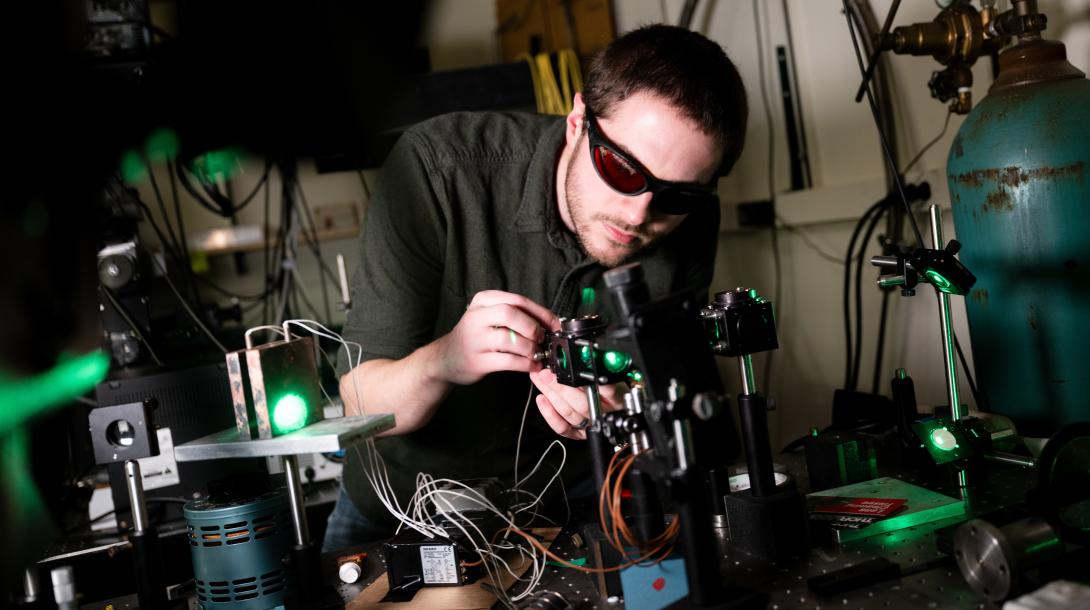
Physics Ph.D. student Jace Curran explores spin-entangled excitons in rubrene
Quantum mechanics continues to be a frontier for exploration, offering a wealth of possibilities for technological advancements. In recent years, the study of excitons in organic semiconductors—mobile quasiparticles formed by quantum states with electrons in higher energy levels—has gained momentum. Among the materials drawing attention in this field is rubrene, an organic semiconductor with unique properties that make it an excellent candidate for fundamental research into certain quantum properties of excitons. Physics Ph.D. student Jace Curran studies the fundamental properties of these excitons in rubrene, gaining valuable insights into this evolving area of study.
At the core of Curran’s research lies the behavior of triplet excitons in rubrene. These excitons, which form from photoexcited states through a process called singlet fission, exhibit spin entanglement—a quantum mechanical property where two particles are interdependent, even when separated. This interdependence ultimately leads to a process of quantum interference when two excitons recombine to emit a photon, and this interference in turn leads to a time-modulation of the light emitted by the triplet excitons. These oscillations in fluorescence intensity are called quantum beats, and they are a unique consequence of spin-entanglement in pairs of excitons. Curran investigates these quantum beats and their origin and uses them to characterize the behavior of triplet excitons in rubrene.
“We create these excitons in this spin-entangled state, and their entanglement persists even as they move independently around the crystal,” he says. “By studying when and why this spin entanglement breaks down, we gain insight into the quantum mechanical processes governing their behavior.”
This work is significant for its possible implications in technologies such as quantum computing and solar energy. Triplet excitons that can be entangled could serve as qubits, the fundamental units of quantum computers, while the efficient generation of excitons by the singlet fission process could enhance the efficiency of solar cells by providing two electrons in an external circuit for the price of one photon.
Spotlight Recipient
Jace Curran
Physics Ph.D. Student
